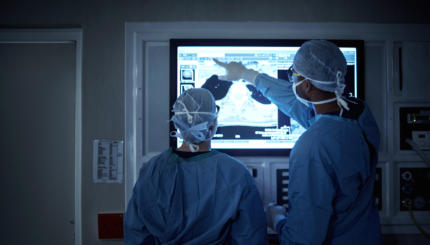I hope we can all agree that the tragedy of the Freundel case is the harm that was done to the women who came to him to supervise their conversions. There are important secondary consequences of this episode including undermining faith in rabbis and a general cynicism about Orthodox practice. But the primary issue we must grapple with now is how to prevent this from happening again in the future. If this is done right, reestablishing trust in the Orthodox establishment will follow as a matter of course.
When problems occur in my everyday life, I often rely on my experience as a doctor in the search for solutions. How should one respond when mistakes happen? Errors of commission and omission occur all too often in medical practice. In the past, they were considered an unfortunate but unavoidable cost of doing business of making people better. But over the past two decades, with increasing attention to quality of care, there is a growing unwillingness to accept medical error and poor clinical outcomes as an inevitable part of patient care. Root cause analyses are routinely implemented after a bad outcome in an attempt to identify the conditions in the health care delivery system that led to the problem. This, in turn, can lead to the implementation of procedures to prevent errors from happening again and ensuring patient safety.
The looming health problem that dominates the news is the Ebola outbreak. After the first case was diagnosed in Dallas, there was widespread recognition that the hospitals and doctors were unprepared. Mistakes were made on the local and national level and patients and health professionals were harmed as a result. However, physicians and public health officials worked hard to devise better strategies to treat patients, identify exposed individuals at risk of developing Ebola, and draft improved procedures to protect patients, health care providers, and the public. This project is far from over and it is unclear whether the Ebola outbreak will be successfully contained. But as far as I can tell, no one has questioned whether a multi-disciplinary approach with multiple layers of oversight involving doctors, researchers, ethicists, public health officials and others is required to treat patients, reduce population exposure, develop new therapies, define the role of clinical trials, and determine the best utilization of resources. There may not always be harmony but everyone recognizes the need for all stakeholders to be involved in this corrective process if mistakes are to be avoided.
Back to Rabbi Freundel. Women in Washington, D.C. may have been inexcusably victimized. It is impossible to say whether this is a unique event. There is no doubt that the vast majority of rabbis conduct themselves with grace and dignity and serve their communities with devotion, compassion, and impeccable ethics. But sometimes rabbis fail and their congregants are hurt and it is everyone’s mandate to minimize the likelihood of this happening. Just as there is oversight and monitoring of doctors and health professionals to ensure that they provide the best medical care for the most people, congregants have the right to know that there are systems in place to ensure that when they go to their rabbi for guidance, they will get the spiritual help they need and not be damaged in the interaction. Again, we can learn from medicine where abuses by investigators involved in clinical research have been addressed by forming oversight committees with broad membership including representatives from the medical community, the lay public, nurses, social workers, bioethicists and lawyers. Similarly, the oversight of Jewish clergy is likely to be most effective and responsive to the needs of rabbi and congregants if all parties are invited to play a role — men and women, single people and married couples, young and old. None of the communal stakeholders should absent themselves from this process.
 Rabbinic oversight is not a referendum on the halakhic practice because that will be something that individuals and communities will decide together with their local rabbi. To claim that oversight will water down halakha or open the door to people who have no role to play, and to withdraw from this process entirely creates a smokescreen behind which abuse of power will continue to occur. This is not a question of gender or solely a matter of sexual abuse. It is a straightforward communal responsibility to ensure that people who approach rabbis for spiritual and professional help are not the senseless victims of harm that could have been prevented.
Rabbinic oversight is not a referendum on the halakhic practice because that will be something that individuals and communities will decide together with their local rabbi. To claim that oversight will water down halakha or open the door to people who have no role to play, and to withdraw from this process entirely creates a smokescreen behind which abuse of power will continue to occur. This is not a question of gender or solely a matter of sexual abuse. It is a straightforward communal responsibility to ensure that people who approach rabbis for spiritual and professional help are not the senseless victims of harm that could have been prevented.
Rabbis, like doctors, are vested with authority by their congregants. Both are assumed to act in the best interests of those they serve and most rabbis and doctors do. But unfortunately some practitioners fall short. As a consequence, doctors are required to have their credentials reviewed, they must undergo periodic reassessment of their capabilities, and have their actions scrutinized by oversight committees. It is time for similar procedures to be implemented for rabbis. This is not a threat to their autonomy or an attack on their credibility. It is merely a recognition of the profound power they have on the lives of their congregants and their communities– mostly for the good but sometimes, and sadly, for bad.
Like this post? Get the latest in MyJewishLearning’s weekly blogs newsletter.


